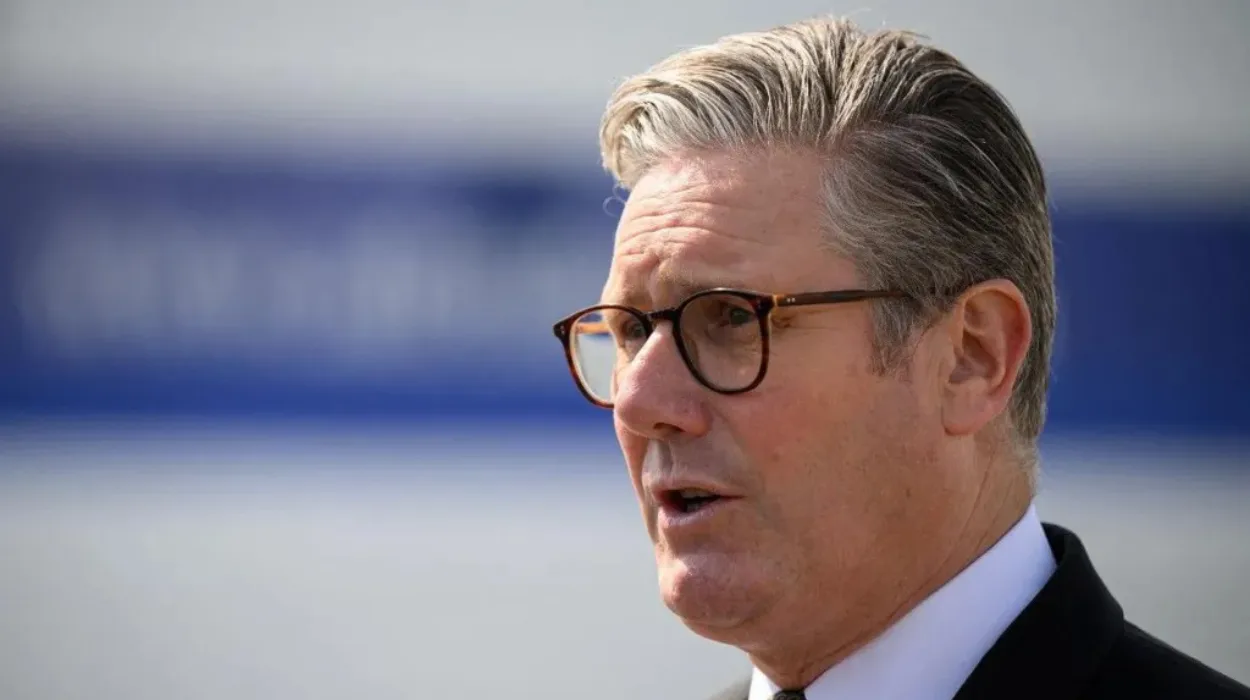Albania (Parliament Politics Magazine) – Keir Starmer announced plans for international return hubs for failed asylum seekers, marking a new approach after scrapping the Rwanda deportation scheme.
As reported by The Independent, formal talks have begun in the UK to send failed asylum seekers to other countries during their deportation process. Sir Keir Starmer revealed the move amid a crackdown on illegal immigration.
What did Keir Starmer say about “return hubs” for failed asylum seekers?
During his Albania visit, the prime minister said he aims to establish “return hubs” abroad for those with no appeal rights in Britain.
Sir Keir told GB News, “What now we want to do and are having discussions of is return hubs – which is where someone has been through the system in the UK, they need to be returned and we have to make sure they’re returned effectively and we’ll do that, if we can, through return hubs.”
However, he warned there is no “silver bullet” to resolve the issue. The prime minister said the UK is negotiating with multiple nations about return hubs, describing them as a “really important innovation.”
Mr Starmer accepted return hubs alone cannot end boat crossings. But he said, alongside other actions targeting smuggling groups and returning those with no UK right, it would “allow us to bear down on this vile trade and make sure that we stop those people crossing the Channel.”
What did the PM’s spokesperson say about return hubs and red tape?
The prime minister’s spokesman claimed the hubs “would provide an opportunity to cut through the existing red tape and remove some of those barriers to remove people.”
He added this would clear barriers to sending people back, easing costs for taxpayers on asylum support.
The spokesman said failed asylum seekers use “stalling tactics” to delay deportation. This includes losing documents and even “starting families” to extend their stay.
Regarding the “return hubs,” he said the objective is
“To remove people who have exhausted all routes to staying in the UK and have no lawful basis to remain here.”
He added,
“We have seen people in the past arriving from safe countries but then using stalling tactics such as losing their paperwork or starting a family to frustrate that removal”.
What’s behind the backlash over Sir Keir’s immigration language?
The prime minister faced backlash over his choice of words. Critics compared his language to Enoch Powell’s infamous 1968 “rivers of blood” speech.
Sir Keir’s recent remarks signify a remarkable shift from his earlier stance five years ago when he served as Jeremy Corbyn’s shadow immigration minister and backed open-border policies. He had also previously labelled immigration critics as “racist” – a position he held just three years ago.
What did Keir Starmer say about partnering with Albania on defence cooperation?
The UK and Albania have agreed on a “statement of intent,” marking a new phase in bilateral security cooperation.
Sir Keir said both nations would
“work together on the manufacture and sale of military vehicles.”
He added,
“This is a moment for European countries to step up and stand firm against Russian aggression on the continent, and later today I will be visiting Albanian and UK troops who are working together to defend our freedoms and citizens, because the battle lines of Ukraine are the front lines of Western values.”
Sir Keir Starmer’s new immigration policies
1. Stricter visa requirements
- Skilled Worker Visa: Now requires at least an undergraduate degree (previously A-levels).
- English Proficiency: All visa routes (including dependents) must meet higher language standards.
- Graduate Visa: Reduced from 2 years to 18 months for post-study stays.
2. Longer path to settlement
- Settled status now requires 10 years (up from 5), except for “high-contributing” workers (e.g., doctors, nurses).
- A new bereaved parent visa allows immediate settled status if a British/settled child dies.
3. Crackdown on abuse & Enforcement
- Article 8 (Right to Family Life): New laws to limit its use in deportation appeals.
- Foreign criminals: Easier deportation for offences beyond jail time (e.g., violence against women).
- Banks/financial institutions must report and deny services to illegal migrants.
4. Sector-specific changes
- Social Care Visa: Scrapped by 2028 (transition period for current holders).
- Domestic Worker Visa: Under review to prevent modern slavery.
- Business Sponsors: Must invest in UK training before hiring overseas workers.
5. Humanitarian routes remain
- Ukraine, Hong Kong, and Afghanistan schemes continue but with stricter sponsorship rules.
6. Tougher border & system controls
- eVisas replace physical documents to curb illegal working.
- Raids & penalties for employers/sponsors abusing the system.
- Asylum seekers from stable countries face tighter scrutiny.

